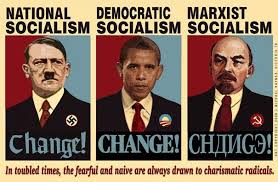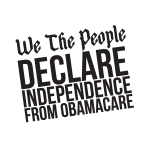Keep the Faith > Tim Townsend Saturday, Oct. 31 2009
The Rev. Bruce McCoy sees answers in nuance.
McCoy, pastor of Canaan Baptist Church in St. Louis, was re-elected president of the Missouri Baptist Convention this week, the same week that President Barack Obama signed into law a new hate crime bill.
Conservative Christians have warned that the long-debated expansion of current hate crime law is a threat to the free speech rights of preachers who believe that homosexuality is a sin.
"I will contend that tone of voice says a lot," McCoy said. "When one hears that they're doing wrong from someone who cares for their soul, it's hard to call that hate speech."
The expansion adds crimes based on gender, sexual orientation, gender identity or disability to existing law that covers attacks motivated by race, color, religion or national origin.
The latest FBI statistics available document 7,624 hate crimes in 2007. In 1,265 of those, the "bias motivation" was sexual orientation. (In 1,400 it was religion, and in 3,870 it was race.)
A Gallup poll from the same year found that 62 percent of those who attend church frequently favored expanding hate crime protections.
But some church leaders worry that parts of the new law will introduce a chilling effect on pastors who may feel that they are in danger of breaking the law by preaching against homosexuality.
"I will be watching closely for any possible infringement on the rights of our members and pastors to speak out against the sin of homosexuality based on the Word of God," said the Rev. Gerald Kieschnick, president of the Lutheran Church-Missouri Synod. "In the days ahead, we may face persecution because of our pronouncement of the truths of Holy Scripture."
In June, 60 conservative Christian leaders signed a letter delivered to Congress members warning that passage of the bill would "silence the moral voice of the church," "punish principled dissent from the homosexual agenda" and "be a savage and perhaps fatal blow to First Amendment freedom of expression."
McCoy said Congress "can write the laws they wish, but it's not going to affect what I preach and how I preach it."
"However," he added. "I will also tell you I don't believe the way that I preach the word of God that speaks against such sin makes people think I take any joy in pointing any fingers at anyone."
CHILLING EFFECT FEARED
In May, the Missouri Baptist Convention newspaper, the Pathway, ran an editorial in which it said that under the new hate crime legislation "anyone speaking or writing against homosexuality could be charged with a federal 'hate crime,'" and that the new law "is an attempt to silence the church's criticism of homosexuality."
Michael Whitehead, an attorney for the Missouri Baptist Convention, told the Pathway that the new law would have a chilling effect on religious free speech.
"When this law passes, American evangelical pastors can expect a growing tide of complaints and investigations if they preach biblical messages about homosexuality," Whitehead said.
This week, opponents of the new law called it, among other things, the "hate Christians" bill and the "pedophile protection act" (because of the rejection of "an amendment specifying that the bill would not penalize the free speech of those objecting to homosexual perversions such as pedophilia," according to Lifesitenews.)
The new law, called the Matthew Shepard and James Byrd Jr. Hate Crimes Prevention Act, is named for Shepard, a gay college student in Wyoming who was murdered in 1998, and Byrd, an African-American man who was dragged to death behind a pickup in Texas the same year.
Leaders of churches that supported the new protections hailed them as much needed and long overdue. They joined the legislation's sponsors and Obama administration officials saying the new law offered plenty of protections for free speech.
"It's true that very conservative Christians have an antipathy towards gays and lesbians," said the Rev. Daniel O'Connell, pastor of the Unitarian Universalist Eliot Chapel in Kirkwood. Fear of sermon persecution "begs credulity to my mind. I just don't buy the argument that this is going to keep conservative pastors from preaching whatever they want to preach."
Soon after an attack on a Tennessee Unitarian Universalist church in July 2008 by a gunman motivated by the denomination's liberal views on homosexuality, the church started a program to protect and support homosexuals called Standing on the Side of Love.
"We believe that no one should be dehumanized through acts of exclusion, oppression, or violence because of their identities," Unitarian Universalist leaders wrote on the program's website.
FEDERAL ROLE
The new legislation also allows the federal government to intervene in investigating and prosecuting hate crimes when states fail to act.
Missouri has its own statute outlawing hate crimes motivated by sexual orientation, defined as "male or female heterosexuality, homosexuality or bisexuality by inclination, practice, identity or expression, or having a self-image or identity not traditionally associated with one's gender."
In a piece widely run on newspaper Op Ed pages this week, Charles Haynes, senior scholar at the First Amendment Center in Washington, wrote that the speech protections of conservative Christian pastors were quite safe.
"Thanks to the First Amendment, we enjoy the strongest protection for free expression in the world," Haynes wrote. "In a society where even white supremacists, anti-Semites and anti-gay hatemongers like the Rev. Fred Phelps are free to speak, local pastors need not worry about being prosecuted for preaching the Gospel as they understand it."
McCoy, pastor of Canaan Baptist Church in St. Louis, was re-elected president of the Missouri Baptist Convention this week, the same week that President Barack Obama signed into law a new hate crime bill.
Conservative Christians have warned that the long-debated expansion of current hate crime law is a threat to the free speech rights of preachers who believe that homosexuality is a sin.
"I will contend that tone of voice says a lot," McCoy said. "When one hears that they're doing wrong from someone who cares for their soul, it's hard to call that hate speech."
The expansion adds crimes based on gender, sexual orientation, gender identity or disability to existing law that covers attacks motivated by race, color, religion or national origin.
The latest FBI statistics available document 7,624 hate crimes in 2007. In 1,265 of those, the "bias motivation" was sexual orientation. (In 1,400 it was religion, and in 3,870 it was race.)
A Gallup poll from the same year found that 62 percent of those who attend church frequently favored expanding hate crime protections.
But some church leaders worry that parts of the new law will introduce a chilling effect on pastors who may feel that they are in danger of breaking the law by preaching against homosexuality.
"I will be watching closely for any possible infringement on the rights of our members and pastors to speak out against the sin of homosexuality based on the Word of God," said the Rev. Gerald Kieschnick, president of the Lutheran Church-Missouri Synod. "In the days ahead, we may face persecution because of our pronouncement of the truths of Holy Scripture."
In June, 60 conservative Christian leaders signed a letter delivered to Congress members warning that passage of the bill would "silence the moral voice of the church," "punish principled dissent from the homosexual agenda" and "be a savage and perhaps fatal blow to First Amendment freedom of expression."
McCoy said Congress "can write the laws they wish, but it's not going to affect what I preach and how I preach it."
"However," he added. "I will also tell you I don't believe the way that I preach the word of God that speaks against such sin makes people think I take any joy in pointing any fingers at anyone."
CHILLING EFFECT FEARED
In May, the Missouri Baptist Convention newspaper, the Pathway, ran an editorial in which it said that under the new hate crime legislation "anyone speaking or writing against homosexuality could be charged with a federal 'hate crime,'" and that the new law "is an attempt to silence the church's criticism of homosexuality."
Michael Whitehead, an attorney for the Missouri Baptist Convention, told the Pathway that the new law would have a chilling effect on religious free speech.
"When this law passes, American evangelical pastors can expect a growing tide of complaints and investigations if they preach biblical messages about homosexuality," Whitehead said.
This week, opponents of the new law called it, among other things, the "hate Christians" bill and the "pedophile protection act" (because of the rejection of "an amendment specifying that the bill would not penalize the free speech of those objecting to homosexual perversions such as pedophilia," according to Lifesitenews.)
The new law, called the Matthew Shepard and James Byrd Jr. Hate Crimes Prevention Act, is named for Shepard, a gay college student in Wyoming who was murdered in 1998, and Byrd, an African-American man who was dragged to death behind a pickup in Texas the same year.
Leaders of churches that supported the new protections hailed them as much needed and long overdue. They joined the legislation's sponsors and Obama administration officials saying the new law offered plenty of protections for free speech.
"It's true that very conservative Christians have an antipathy towards gays and lesbians," said the Rev. Daniel O'Connell, pastor of the Unitarian Universalist Eliot Chapel in Kirkwood. Fear of sermon persecution "begs credulity to my mind. I just don't buy the argument that this is going to keep conservative pastors from preaching whatever they want to preach."
Soon after an attack on a Tennessee Unitarian Universalist church in July 2008 by a gunman motivated by the denomination's liberal views on homosexuality, the church started a program to protect and support homosexuals called Standing on the Side of Love.
"We believe that no one should be dehumanized through acts of exclusion, oppression, or violence because of their identities," Unitarian Universalist leaders wrote on the program's website.
FEDERAL ROLE
The new legislation also allows the federal government to intervene in investigating and prosecuting hate crimes when states fail to act.
Missouri has its own statute outlawing hate crimes motivated by sexual orientation, defined as "male or female heterosexuality, homosexuality or bisexuality by inclination, practice, identity or expression, or having a self-image or identity not traditionally associated with one's gender."
In a piece widely run on newspaper Op Ed pages this week, Charles Haynes, senior scholar at the First Amendment Center in Washington, wrote that the speech protections of conservative Christian pastors were quite safe.
"Thanks to the First Amendment, we enjoy the strongest protection for free expression in the world," Haynes wrote. "In a society where even white supremacists, anti-Semites and anti-gay hatemongers like the Rev. Fred Phelps are free to speak, local pastors need not worry about being prosecuted for preaching the Gospel as they understand it."
If you enjoy reading about interesting news, you might like the 3 O'Clock Stir from STLtoday.com. Sign up and you'll receive an email with unique stories of the day, every Monday-Friday, at no charge. Sign up at http://newsletters.stltoday.com

 Oldies
Oldies
 Harrolds.Blogspot.com
Harrolds.Blogspot.com











 Legislation Pending in Congress
Legislation Pending in Congress







No comments:
Post a Comment
Please, avoid posting advertisements. Content comments are welcomed, including anonymous. Posts with profanity will not be published.